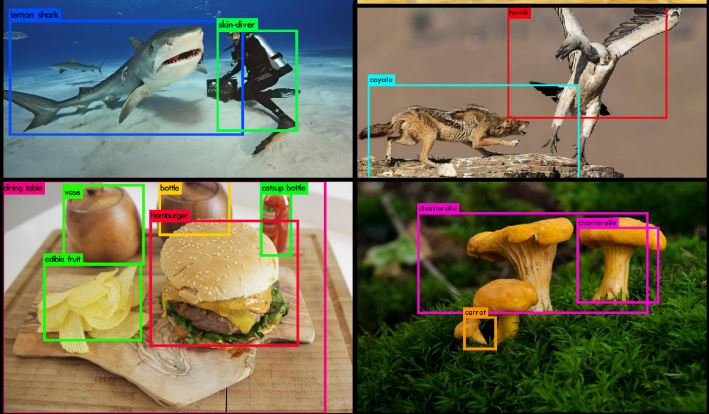Rating: 1 star out of 5.
It’s onerous to not write an interesting e-book on the Philosophy of the Web. The Web is a current phenomenon that has pervaded all features of our lives at lightning pace. And similar to social and political insurance policies, philosophy is discovering it onerous to maintain up. We simply haven’t had the time to step again and course of how what is occurring round us may very well be understood at a metaphysical or phenomenological degree. That is the present wild, wild west of the mental world. So, in case you’re a sensible, observant, intuitive cookie, a e-book on the Philosophy of the Web is a given to be a success. You’re going to be a trailblazer.
Sadly, Justin E. H. Smith, professor of historical past and philosophy of science on the Université Paris Cité, fails at this job miserably. I’m nonetheless baffled at how he managed it. Particularly when he began off so effectively: “We live in a disaster second of historical past, within the true sense of “disaster”: issues may get higher finally, however they are going to by no means be the identical… The precept costs in opposition to the web… need to do with the methods by which it has restricted our potential and our capability for thriving, the methods by which it has distorted our nature and fettered us… as such the web is anti-human. If we may put it on trial, its crime could be a criminal offense in opposition to humanity.”
Effectively, the suspense has been constructed! This merely must be an awesome learn! One would suppose…
Professor Smith, nevertheless, is a type of professors you will have had the amusement in addition to annoyance to have come throughout in your college days as a scholar. You see an interesting matter. Nice first slide. Nice introduction. After 10 minutes, although, you begin to shuffle in your chair awkwardly questioning in case you’re the one one within the room questioning the validity of what’s being introduced to you earlier than your eyes. After 20 minutes you begin to go searching the room to see if others are beginning to really feel any annoyance in any respect. After 30 minutes, you have got your face in your arms questioning how on earth this individual managed to get a excessive place at a college.
Smith tries to construct a philosophy of the Web. However I don’t suppose he fairly understands what that truly means. Plato, Aristotle, Aquinas, Kant, Heidegger, Husserl – heck, each nice thinker understood that one must function from a framework of understanding of the world (the way it works, what it’s composed of, whether or not it has an intrinsic hierarchy of values, and so forth.) earlier than uttering something. Then from this framework one can try and extrapolate which means of particular issues. With no framework, your ideas and observations, if making an attempt to be philosophical, will likely be untethered, anchorless, and like balloons will float above within the sky able to be shot down by a baby with a BB gun. Not each nice thinker created an entire framework however once they spoke, you at all times knew the place they had been coming from.
That’s typically how philosophy works. Smith, nevertheless, thinks that to create a Philosophy of the Web he simply has to indicate that the phenomena that we expertise with the web, equivalent to communication and interconnectedness, have existed in a method or one other because the daybreak of time:
“[The Internet] doesn’t signify a radical rupture with every thing that got here earlier than, both in human historical past or within the vastly longer historical past of nature that precedes the primary look of our species… [it is] extra like an outgrowth latent from the start in what we’ve at all times performed.”
And that is how he proceeds for the remainder of the e-book:
“[T]he sperm whale’s clicks, the elephant’s vibrations, the lima beans plant’s rhizobacterial emissions… are all forms of “wifi” too.”
Pages and pages of analogies from nature comply with:
“It was simply as frequent from antiquity by the trendy interval to check nature… as a wired or related community, that’s, a correct net… Such a system is instanced paradigmatically in what could also be considered the unique net, the one woven by the spider”
From whales’ “clicks” to spiders’ webs in nature we’re meant to construct a Philosophy of the Web? What on earth are you speaking about, right here, sir?
I’d cease and transfer on however these quotes are simply too good to go up:
“The necessary factor to register for now’s that the spider’s net is an internet in a minimum of among the similar respects that the World Large Net is an internet: it facilitates experiences, to a cognizing or sentient being that occupies certainly one of its nodes, about what’s going on at different of it nodes”.
The “vegetal world” will get a point out, too, in fact. Discipline grass, timber – all these have “underground community of roots, whose exchanges might be tracked to a way often called “quantum dot tagging””.
We’re about one-third of the best way by the e-book now and that is in regards to the second that I’m beginning to go searching the lecture room to see if anyone else is noticing these fickle makes an attempt at intellectualism. That is one thing worthy of a highschool philosophy paper.
From analogies in nature, Smith then proceeds to analogies within the historical past of thought:
“Within the historical past of western philosophy, in actual fact, one of the vital enduring methods of conceiving the connectedness of all beings… has been by the concept of a “world soul”… One may dare to say, and I’m in actual fact saying, that we at all times knew the web was potential. Its look in the newest period is simply the newest twist in a for much longer historical past of reflection on the connectedness and unity of all issues.”
Absolute gold. The perfect quote out of those sections is that this one:
“The very growth of the binary calculus that… marks the true starting of the historical past of knowledge science, was itself a direct borrowing from a broadly neo-Platonic mystical custom of considering the connection between being and non-being: the place the previous could be represented by “1” and the latter by “0.”
The truth that we’ve 1s and 0s in electronics might be traced again to neo-Platonic mystical traditions? This man has bought to be joking. We’re two-thirds into this e-book and now I’m not solely questioning if anyone else sees by this junk on this lecture theatre however I’m additionally beginning to wonder if I’m not in certainly one of Franz Kafka’s novels. This man is a professor at a prestigious college in Paris. It is not uncommon data that Kafka was identified to snigger uncontrollably when studying his work aloud to pals. By this stage I’m laughing aloud in a restaurant myself at what I’m studying.
When Professor Smith lastly finishes exhibiting how concepts inherent within the web originate in lima beans and Augustinian “Confessions”, he ends abruptly and with satisfaction. He says nothing extra of worth, nothing extra to what I’ve summarised right here. His “Philosophy of the Web”, this nice masterpiece, is meant to suffice.
Sure, I’m nonetheless trying across the lecture theatre to discern whether or not I’m in Kafka’s Trial or not. Individuals round me are clapping their gratitude. I do not know what is occurring. When the clapping subsides, Smith provides yet another utterance to his work. After which every thing turns into crystal clear to me:
“I’m writing, from New York Metropolis, throughout the coronavirus quarantine within the spring of the yr 2020.”
Ah! There you have got it! A piece conceived throughout a lockdown interval. Now this e-book makes excellent sense to me!
We’ve all been there, haven’t we? All of us went a bit loopy and insane once we had been despatched to our rooms by our benevolent authorities throughout the pandemic throughout which era all of us conceived of nutty philosophical concepts that had been supposed to save lots of the world. The distinction is that once we lastly left our confines and lucidity hit us like a fast-moving bus, we retracted our incoherent concepts. Smith, sadly, didn’t do that.
To be told when new content material like that is posted, subscribe to the mailing checklist:




